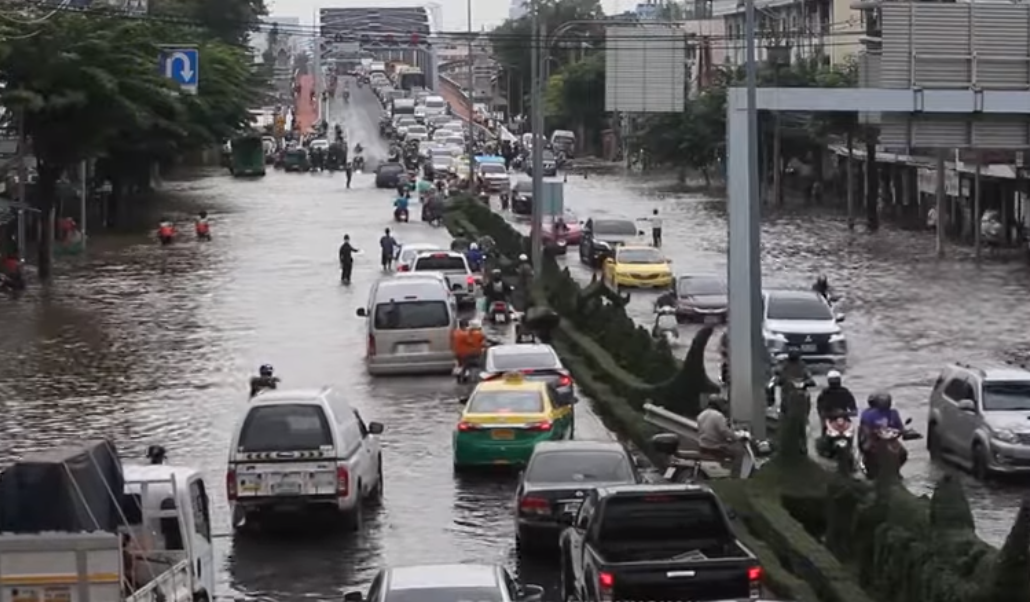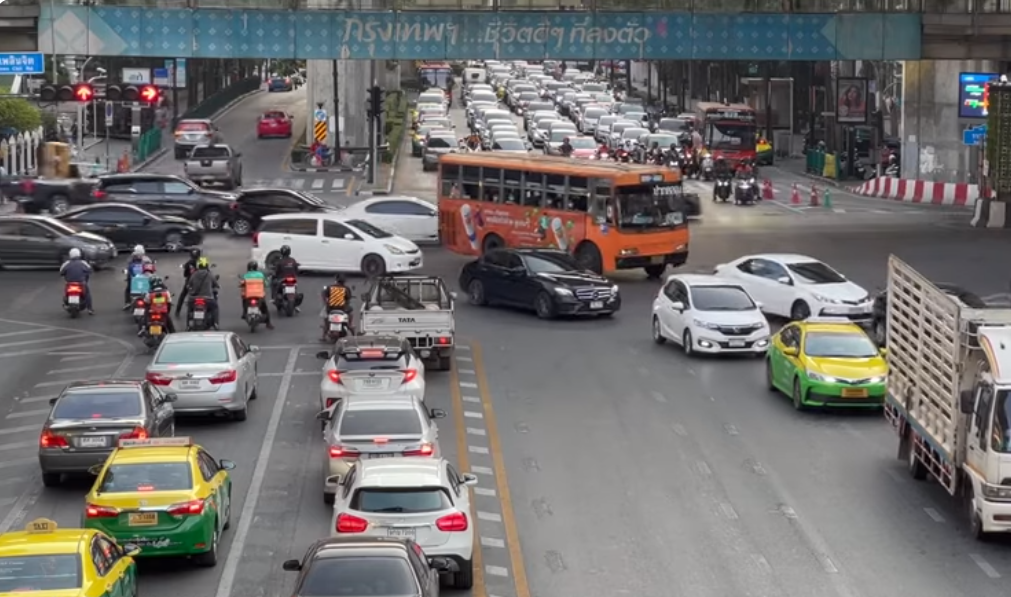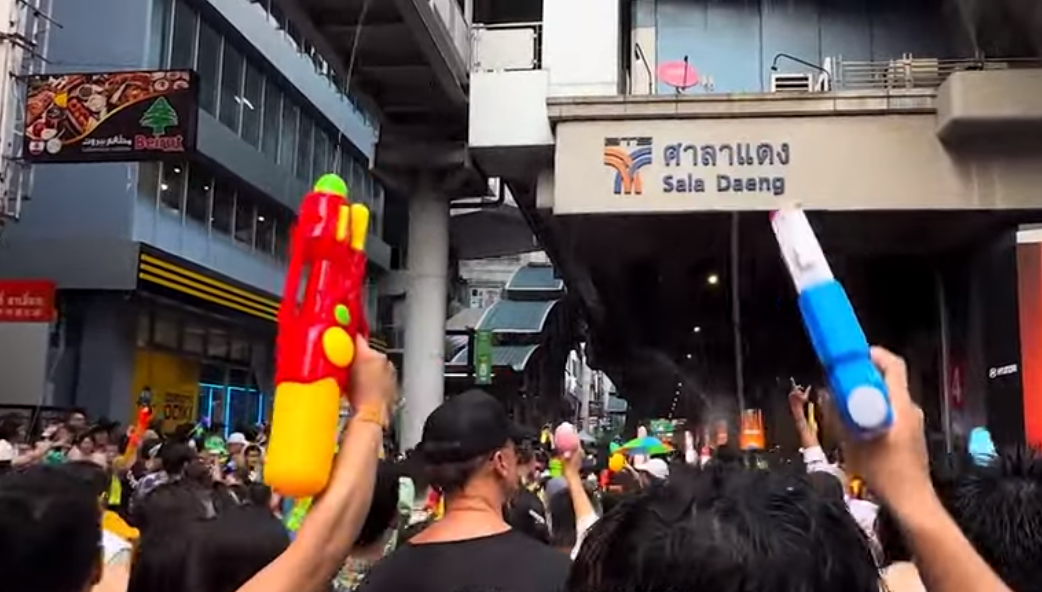Thailand, the beautiful country of nature, culture, and cuisine, is an attractive destination for travelers from all over the world, and Vietnamese people are no exception, especially as travel between the two countries is becoming increasingly convenient, even without prior planning, with reasonable service costs and diverse, quality, and affordable experiences.
In recent years, Vietnam has always been one of the countries with the highest number of tourists visiting Thailand. Specifically, in just the first five months of this year, more than 391,000 Vietnamese people have traveled to the land of smiles, with many destinations becoming so familiar to Vietnamese tourists that they jokingly refer to Thailand as their second home, due to the numerous times they have traveled there. It must be acknowledged that Thailand does tourism very well; however, the recent incident involving a group of Vietnamese tourists in Bangkok has raised a question that has rarely been discussed: Is Thailand really a safe destination?

First is the issue of natural disasters. Thailand is a country that is easily affected by natural disasters such as earthquakes, tsunamis, floods, or landslides during the rainy season. I remember that in July last year, the capital Bangkok recorded relatively serious flooding due to heavy rain. In some areas, the water rose nearly half a meter, causing many cars and other vehicles to be submerged. Previously, in 2021, a storm caused one-third of the country to be flooded, and the capital Bangkok was put on high alert for severe flooding, resulting in casualties and affecting 70,000 households in Thailand.
The worst flooding disaster in Thailand occurred in 2011, with the most severe rainfall in decades submerging one-fifth of the city and causing over 500 deaths. If you plan to travel to Thailand during the rainy season, especially Bangkok, be aware that Bangkok, the 240-year-old capital of Thailand, is also known as the City of Angels. It is located in the Chao Phraya River delta, one of the largest cities in the world facing the risk of frequent flooding due to rising sea levels.
The reason is that since Bangkok was established, water for domestic use and production has mainly been drawn from wells within the city. Due to the gradual decrease in groundwater, the land above has sunk, causing the elevation of Bangkok to decrease over time. The second factor regarding safety when traveling to Thailand relates to epidemiology. When traveling to Thailand, doctors recommend getting vaccinated against tetanus, hepatitis A, and rabies caused by animals.
Additionally, it is advisable to equip yourself with malaria prophylaxis as tourists are at high risk of infection from mosquito bites in Thailand. The fourth factor that Vietnamese people surely understand well is traffic safety. In 2019, Thailand was ranked number one in Southeast Asia for the number of fatalities due to road accidents.

The American news outlet CNN even rated driving for seven days during the New Year holiday in Thailand as a hair-raising experience, with drunk driving, corrupt police, and poor awareness being the causes of the high number of fatalities in traffic incidents in Thailand. The World Health Organization (WHO) estimates that every year, more than 20,000 people die in traffic accidents in Thailand, with 73% of these being motorcyclists, a mode of transportation that has exploded in Thailand over the past few decades and has become the most popular form of transport among households in the country.
In 2019, there was an incident where 10 people, mainly foreign workers, including five Vietnamese, died due to this cause in Kachanaburi province. The incident occurred at an intersection without traffic lights when a truck collided violently with a 16-seat vehicle and fell into a water canal. The fifth issue is the problem of tourist scams, such as illegal taxis, scams involving watercraft damage, or other tricks like fake police asking to check tourists' passports and demanding fines.
In reality, many foreigners come to Thailand for tourism but take advantage of and engage in illegal activities, so Thai police often check passports. Therefore, bad actors have exploited this situation, but objectively speaking, such issues exist everywhere, and Thailand is no exception. However, besides these problems, there are also safety issues unique to Thailand. For example, Songkran is the traditional New Year festival of the Thai people, celebrated since 1941.
Previously, the water splashing festival coincided with the harvest season, so people created activities to relax and facilitate young people to socialize and splash water to cool off during the hot month of April. Later, Songkran became a highly communal festival, becoming one of the most attractive festivals for foreign tourists in Thailand, symbolizing the act of splashing water to wash away bad luck and bring good fortune to participants.

Thais believe that the more water one splashes, the more love and care they receive from others, and they will encounter more good fortune. In December 2023, Songkran was officially recognized by UNESCO as an intangible cultural heritage of humanity. With this honorary title, Thailand is going big this year by organizing many large events and reducing flight fares to attract more tourists to enjoy.
However, the festival is often associated with the label of being dangerous due to frequent incidents that result in loss of life. In 2023, during the Songkran festival, there were over 2,000 incidents resulting in 236 deaths and over 2,000 injuries, including both foreign tourists and locals. Among these, Bangkok had the highest number of casualties. On this day, many roads in Thailand are wet, making them prone to slipping, and traffic police have had to implement many measures such as setting up checkpoints, reminding participants to wear helmets, comply with traffic laws, maintain speed limits, and avoid using stimulants while driving. Additionally, tourists are reminded not to use high-pressure water guns when spraying others, as it can cause injury, and not to wear excessively revealing clothing. It's best to say that it's fun, but don't overdo it.
A very serious issue to consider is the political instability in Thailand. Thailand has a notorious history of political instability due to frequent protests, which is quite complex to explain. In summary, it is because Thailand has too many conflicting forces, including the Royal Family, one of the wealthiest in the world, protected by strict laws, and the military with formidable power. The multi-party political system has no party willing to yield to another, and the political crisis confrontations among the elite classes occur every two to three years, hindering Thailand's sustainable development and causing significant damage to the tourism industry.
Another consequence of political instability is that the southernmost region of Thailand has become a no-go zone for tourists due to the area along the Malaysia border being ravaged by a separatist uprising since the 1940s. Notably, an incident occurred on March 17, 2020, when the COVID-19 pandemic had just begun to hit Thailand. The same separatist group had previously caused a horrific incident at the Erawan Shrine in the heart of Bangkok in 2015, resulting in 20 deaths and over 120 injuries. Speaking of this, one cannot ignore the concerning situation related to arms control.
In October 2023, a 14-year-old teenager repeatedly fired shots in the Paragon shopping mall, one of the top shopping centers in Bangkok, causing hundreds of people to flee the scene, but unfortunately, one person died and six were injured. The perpetrator had a history of mental health issues but had recently stopped taking medication, and notably, his testimony stated that he chose the most extreme way to defend himself because he felt someone would harm him. The toy was purchased online, and the mall where the incident occurred is very close to the Grand Erawan Hotel, where six people, including four Vietnamese citizens, recently died from poisoning.
Due to a debt dispute, the creditor and the debtor met in Thailand to resolve the issue. Interestingly, they initially planned to meet in Japan, but when one person could not obtain a visa, the creditor's spouse changed the location to Thailand because they also wanted to visit Wat Pho in Bangkok, a famous site for Vietnamese people, not knowing that it would be a one-way trip.

However, following the developments of the incident, many people have expressed the opinion that this case is a specific example showing how cases involving foreigners are handled quickly and superficially by the authorities to protect the image and prevent any impact on the country's tourism. What do you think about the Thai government's response to this incident? Do you think they have fulfilled their responsibilities by conducting a thorough investigation to provide the earliest answers, or are they just doing it superficially to get it over with?
